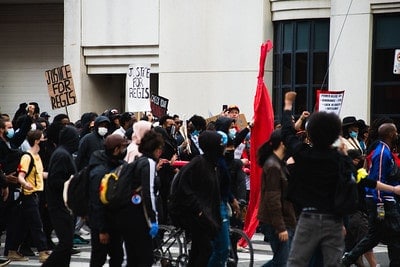Hill Times June 15, 2020

In the second quarter of 2020, racism and police brutality was brought to the forefront of the world’s consciousness. Black Americans, Native Americans, and allies closed down American cities as a measure of the stark and desperate urgency to change whole systems. Racism and police brutality have no place in any democracy.
The movement crossed over into Canada. Thank you to all Black Canadians who are speaking out for safety and belonging. Indigenous peoples share the demand for safety and belonging in our own country. Our demands and rights are stronger when we gather together. Obviously, the demand and urgency for safety and belonging for Indigenous peoples needs all the help and voice and amplification possible, given that certain high ranking police officers refuse to admit that systemic racism exists.
Yes, systemic racism exists.
Indigenous Canadians have a lower income than others, higher unemployment, much higher incarceration, and this is the result of systemic racism. An uncounted number of Indigenous individuals have died by police or in custody recently, many without vigorous or completed investigations.
We will not forget.
Eishia Hudson, 16.
Jason Collins, 36.
Stewart Kevin Andrews, 22.
Chantal Moore, the young First Nations woman killed by New Brunswick police during a ‘wellness check,’ 26.
Debralee Chrisjohn, 39.
Chief Allan Adam was assaulted, an Inuk in Kinngait was doored, Elliot McLeod was kneed, there were 63 complaints of police abuse of Indigenous individuals in Quebec, another 30 in Nunavut… yes, there’s systemic racism.
It’s not just “bad apples” in police forces. The concept of “bad apples” in a police force is about as ludicrous as “bad apple” pilots. It is not too much to expect that police brutality be prosecuted as a crime and punished severely. In fact, it’s part and parcel of maintaining a police force that can be trusted by its citizens. We do pay for the police salaries, they are accountable to us.
Here’s another quote that’s gone viral in social media: privilege is when you can learn about racism rather than experience it. Last week, I was pulled over by police in a routine event. Yes, I’m fine. No, I was not charged or fined. Here’s the thing: this type of experience might be routine for others, but it is far from routine for Indigenous individuals. I was scared, so scared I was trying not to hyperventilate. There were no witnesses nearby. Will the officers exhibit racist attitudes? Will I get handcuffed? Will I end up with hundreds and hundreds of dollars in fines, when I know that a non-Indigenous individual wouldn’t be charged in the exact same situation? Will the officer overreact?
Please don’t attempt to rationalize this as my problem, because it’s not “my” problem. Fear of police and inability to trust based on historical events, that’s our problem.
Of course, not all police officers are risky, there are many who have integrity and respect every citizen they meet. It’s too bad the officers and senior leaders did not also speak up to protect their organizational integrity, to hold the line inside the force. The silence is deafening, and now it might be too late. Trust is broken.
If this makes you uncomfortable, good. Discomfort is required in this discussion. Discomfort won’t kill you. But the fear and alarm that Indigenous peoples have when we have to interact with police, it might kill us.
Please use every single opportunity to use your voice, speak out against racism, demand wholesale change in Canada’s police forces. Police officers are not above the law.
So, no, I am not fine. Neither should you be.
